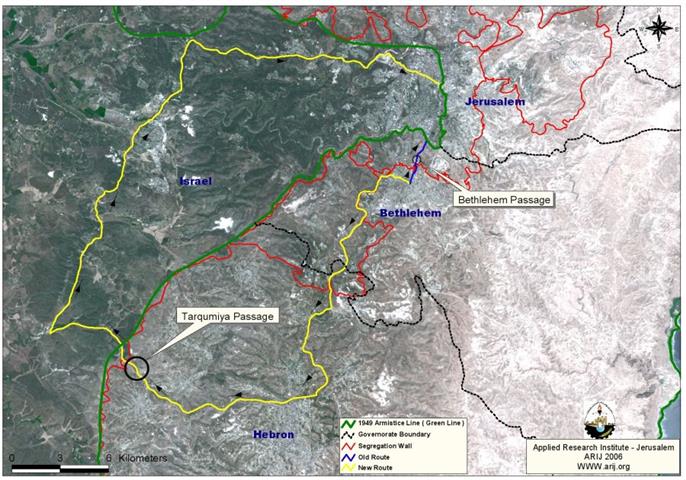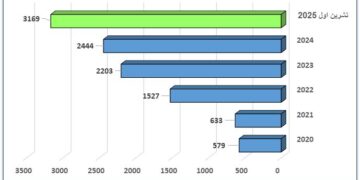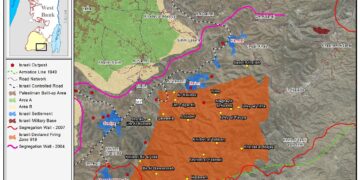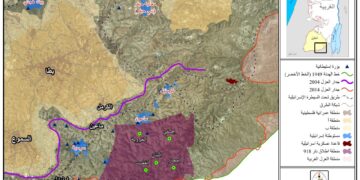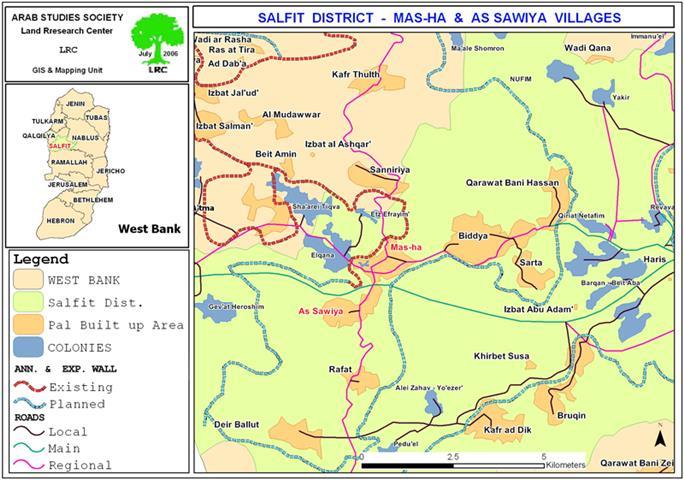The stone industry in Palestine is considered one of the most significant and active natural resource based sectors of the Palestinian economy. Historically, the stone and marble industry has tended to consist of family run enterprises, the ownership of which was passed down through hereditary lines. Although it is difficult to find a date, historians are in agreement that the commercial mining of stone for export has taken place in Palestine for centuries, serving the construction needs of neighboring nations.
The Palestinian production of stone comprises about 4 percent of the Worlds total stone production, making Palestine the 12th (Marble-Stone book) largest stone producer in the world. This sector contributes approximately 25% to Palestinian's overall industrial revenue, or 4.5% to the total Palestinian GNP and 5.5% of the Gross Domestic Products (GDP). The total annual revenue of this industry is estimated to be 450 million USD, 65% of which comes from exports to Israel and about 6% come from direct exports to international markets (Palestinian Marble and Stone Industry, 2005).
Different studies and figures indicate that the productivity of this sector is relatively high in accordance to the average annual sales per the individual unit of labor, which reached US $60,000 (Palestinian Marble and Stone Industry, 2005); equivalent to 5 times the size of its productivity in other industrial sectors. However, the number of these facilities has dropped since 2000 due to the closure that the Israeli authority is imposing on the Occupied Palestinian territory which forced many small factories to close.
Serious measures adopted by Israel in the Occupied Palestinian Territory to restrain the movement of Marble and Stone
Since five years the occupied Palestinian territory has been suffering from the closure policy, which has severely impacted the humanitarian conditions and erupted the daily life of around 2.5 million Palestinians. The closure even intensified after the construction of the segregation Wall where more restrictions were imposed on the movement of people, labor and goods. These Israeli actions have severely impacted the Palestinian industrial and commercial sectors.
Recently, in June 2006 the Israeli authority have imposed further impediments on marble and stone trade and on the movement of goods with regard to the papers that have to be submitted on the checkpoints, the search process that each truck has to go through and the specific terminals that the trucks have to use. The soldiers running the checkpoints/crossing points are asking Stone factories that are transporting stones and marbles to Jerusalem or to Israel, to submit Israeli clearance bills for every stone or marble charge destined to be sent out of the area, as well as the Israeli shipping certificates.
In addition, each truck goes through a tedious process of security inspections, where parts of the merchandise are unloaded, opened, intensively searched then reloaded into the trucks. This process increases the possibility of breaking parts of the stone and marble bars and pieces.
Moreover, the stone and marble merchandise are only allowed to exit to Jerusalem or Israel via Tarqumiya terminal (located west of Hebron Governorate), thus substantially increasing the distance to be crossed and increasing the time spent on the road and waiting at the terminal, therefore quadrupling the shipment costs. The Palestinian factories have to bear all these extra expenses, thus increasing the production cost without being able to market their products. Such Israeli measures adversely affects the companies' and factories' efficiency. See Map 1
Conclusion:
The complex Israeli practices, experienced daily at the checkpoints in the form of restrictions on the passage of goods and people, combined with the shipping restrictions inside Palestine, contradict the protocol on Economic relations between Israel and Palestine. The original agreement signed on April 29, 1994 (the Paris protocol, Article IX: Industry), states that 'There will be free movement of industrial goods free of any restrictions including customs and import taxes between the two sides, subject to each side’s legislation…Each side will do its best to avoid damage to the industry of the other side and will take into consideration the concerns of the other side in its industrial policy…The Palestinians will have the right to export their industrial produce to external markets without restrictions, on the basis of certificates of origin issued by the Palestinian Authority.' This agreement in not being honored; the result is a detrimental impact upon the stone industry in Palestine.
References:
-
Palestinian Marble and Stone Industry. Bethlehem: Industrial Modernization Center, 2005.
Prepared by
The Applied Research Institute – Jerusalem
ARIJ


